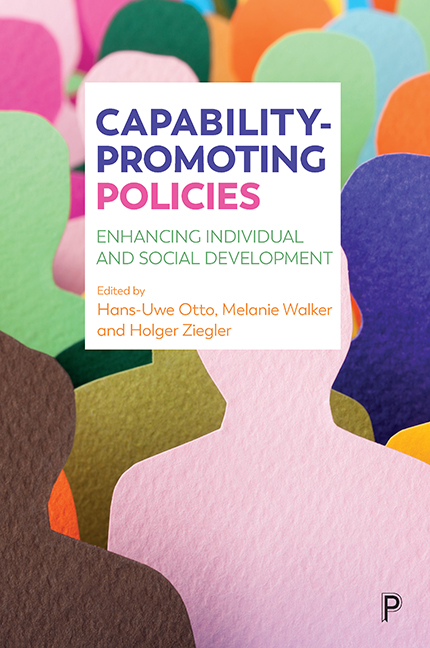Thirteen - Early childhood educational curricula: implications of the capability approach
Published online by Cambridge University Press: 12 April 2022
Summary
Introduction
This chapter endeavours to explore the potential of a capabilitypromoting policy in early childhood education (ECE). More specifically, reference to Martha Nussbaum's list of basic human capabilities, developed as a relatively definite standard of minimal justice, and an adequate frame for capability-promoting policy in Early Childhood Education (ECE) and especially in the curriculum development will be considered (Richardson, 2015). These central capabilities, defined as the minimum human entitlement, are deeply rooted in the normative principles that govern ECE, and provide a general framework for policymaking and policy evaluation.
The significance of ECE is generally accepted and many countries are exploring the educational needs of the young with a special focus on those who are economically and socially disadvantaged (OECD, 2006). ECE offers a chance for the establishment and support of the kind of habitus that supports the long-term means of fulfilling one's potential. Indeed, ECE can improve children's long-term life chances and their long- and medium-term outcomes (see, for example, Wright et al, 2000; Magnuson et al, 2004; Duncan et al, 2012). Thus, another aspect is that educational systems can also reproduce social inequalities. As Wiborg and Hansen show (2009), even in relatively wealthy and welfare-rich countries such as Norway, growing up in a poor household means you are more likely to be poor as an adult. This type of economic disadvantage is persistent and difficult to address. Added to this, confounding factors come into play such as the association between being a migrant child, living in a poor neighbourhood and being unlikely to attend an ECE institution, and a lower likelihood that a high-quality ECE institution will be available in the local community. Furthermore, factors that contribute to disadvantage tend to compound and cluster (Bask, 2011), resulting in cumulative disadvantage over time.
Universal access to ECE for all children is advocated as a way to reconcile work and family life and to promote the socioeconomic integration of vulnerable groups in society. The United Nations International Children's Emergency Fund (UNICEF) concludes that this increasing government interest in early childhood services occurs because they offer an apparent opportunity to break into the cycle by which disadvantage tends to reproduce itself, and because no nation today can afford to ignore opportunities for maximising investments in education in a competitive economic environment increasingly based on knowledge, flexibility, and lifelong learning skills (Dahlberg and Moss, 2005).
- Type
- Chapter
- Information
- Capability-Promoting PoliciesEnhancing Individual and Social Development, pp. 237 - 258Publisher: Bristol University PressPrint publication year: 2017

